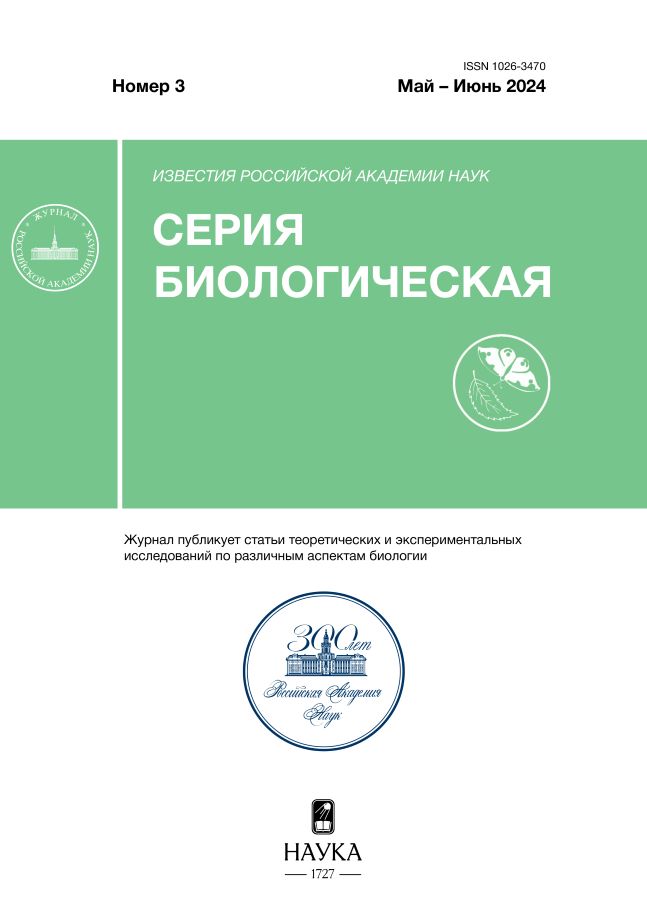Calcium-activated chloride channels. Role of potassium ions
- Autores: Zamoysky V.L.1, Gabrelian A.V.1, Grigoriev V.V.1
-
Afiliações:
- Institute of Physiologically Active Compounds of the Russian Academy of Sciences
- Edição: Nº 3 (2024)
- Páginas: 375-383
- Seção: ФИЗИОЛОГИЯ ЖИВОТНЫХ И ЧЕЛОВЕКА
- URL: https://cijournal.ru/1026-3470/article/view/647810
- DOI: https://doi.org/10.31857/S1026347024030082
- EDN: https://elibrary.ru/VAJJDC
- ID: 647810
Citar
Texto integral
Resumo
Using the patch-clamp method in the whole-cell configuration, it was shownthat external potassium ions play an important role in the regulation of calcium-activated chloride currents. A clear dependence of the amplitude of chloride currents on changes in the concentration of external potassium is shown. Changes in concentration of sodium, magnesium and calcium ions from membrane outside have no so significant effect, like outside potassium ions. The effect of potassium on the amplitudes of chloride currents is significantly greater than the effect it has on other cell ionic currents — sodium, potassium, cation. There is reason to believe that a change in the amplitudes of chloride currents contributes to the pathophysiological processes characteristic of hypokalemia and hyperkalemia.
Texto integral
Sobre autores
V. Zamoysky
Institute of Physiologically Active Compounds of the Russian Academy of Sciences
Autor responsável pela correspondência
Email: vzam@yandex.ru
Rússia, Chernogolovka
A. Gabrelian
Institute of Physiologically Active Compounds of the Russian Academy of Sciences
Email: vzam@yandex.ru
Rússia, Chernogolovka
V. Grigoriev
Institute of Physiologically Active Compounds of the Russian Academy of Sciences
Email: vzam@yandex.ru
Rússia, Chernogolovka
Bibliografia
- Вихарева Е.А., Замойский В.Л., Григорьев В.В., Бачурин C.O. Кальций-активируемые хлорные токи в мембране клеток Пуркинье мозжечка крыс // ДАН. 2015. Т. 465, С. 372—374. DOI: 10.7868/ S0869565215330282.
- Вихарева Е.А., Замойский В.Л., Григорьев В.В. Модификация кальций-зависимых хлорных токов в нейронах Пуркинье мозжечка крыс // БЭБМ. 2016. T. 162, C. 672—677. doi: 10.1007/s10517-017-3694-1.
- Гелетюк В.И., Казаченко В.Н. Одиночный калий-зависимый Cl-канал в нейронах моллюска: множественность состояний проводимости. // ДАН. 1983. Т. 268. № 5. С. 1245—1247.
- Григорьев В.В. Кальций-активируемые хлорные каналы: структура, свойства, роль в физиологических и патологических процессах // Биомедицинская химия. 2021. Т. 67. № 1. С 17—33. doi: 10.18097/PBMC20216701017.
- Замойский В.Л., Григорьев В.В. Ключевая роль ионов хлора в регуляции быстрых натриевых токов в нейронах крыс // ДАН. 2017. Т. 477. № 4. С. 493—495. doi: 10.7868/S0869565217340229
- Замойский В.Л., Бовина Е.А., Бачурин С.О., Григорьев В.В. Роль ионов калия в регуляции кальций-активируемых хлорных каналов. ДАН. 2021. Т. 500. С. 470—473. doi: 10.31857/S2686738921050334.
- Bregestovski P.D., Printseva O.Y., Serebryakov V., Stinnakre J., Turmin A., Zamoyski V. Comparison of Ca2+-dependent K+ channels in the membrane of smooth muscle cells isolated from adult and foetal human aorta // Pflugers Archiv. 1988. V. 413. P. 8—13.
- Crottès D., Jan L.Y. The multifaceted role of TMEM16A in cancer // Cell Calcium. 2019. V. 82:102050.doi: 10.1016/j.ceca.2019.06.004.
- Guo S., Chen Y., Pang C., Wang X., Qi J., Mo L., Zhang H., An H., Zhan Y. Ginsenoside Rb1, a novel activator of the TMEM16A chloride channel, augments the contraction of guinea pig ileum // Pflugers Archiv. 2017. V. 469. P. 681—692. doi: 10.1007/s00424-017-1934-x.
- Hamill O.P., Marty A., Neher E., Sakmann B., Sigworth F.J. Improved patch-clamp techniques for high-resolution current recording from cells and cell-free membrane patches // Pflugers Arch. 1981. V. 391, P. 85—100. doi: 10.1007/BF00656997.
- Huang W.C., Xiao S., Huang F., Harfe B.D., Jan Y.N., Jan L.Y. Calcium-activated chloride channels (CaCCs) regulate action potential and synaptic response in hippocampal neurons // Neuron. 2012. V. 12. № 74(1). P. 179—192. doi: 10.1016/j.neuron.2012.01.033.
- Ji Q., Guo S., Wang X., Pang C., Zhan Y., Chen Y., An H. Recent advances in MEM16A: Structure, function, and disease // J Cell Physiol. 2019. V. 234. P. 7856—7873. doi: 10.1002/jcp.27865.
- Kamaleddin M.A. Molecular, biophysical, and pharmacological properties of calcium-activated chloride channels // J. Cell Physiol., 2018. V. 233. P. 787—798. doi: 10.1002/jcp.25823.
- Kaneda M., Nakamura H., Akaike N. Mechanical and enzymatic isolation of mammalian CNS neurons // Neurosci. Res. 1988. V. 5. P. 299—315. DOI: 10.1016/ 0168-0102(88)90032-6.
- Kunzelmann K., Tian Y., Martins J.R., Faria D., Kongsuphol P., Ousingsawat J., Thevenod F., Roussa E., Rock J., Schreiber R. Anoctamins // Pflugers Arch. 2011. V. 462. P. 195—208. doi: 10.1007/s00424-011-0975-9.
- Wang B., Li C., Huai R., Qu Z. Overexpression of ANO1/ TMEM16A, an arterial Ca2+‐activated Cl‐channel, contributes to spontaneous hypertension // Journal of Molecular and Cellular Cardiology. 2015. V. 82. C.22—32. doi: 10.1016/j.yjmcc. 2015.02.020.
- Yu K., Whitlock J.M., Lee K., Ortlund E.A., Cui Y.Y., Hartzell H.C. Identification of a lipid scrambling domain in ANO6/TMEM16F // Elife. 2015. 4: e06901. doi: 10.7554/eLife.06901.
Arquivos suplementares

















